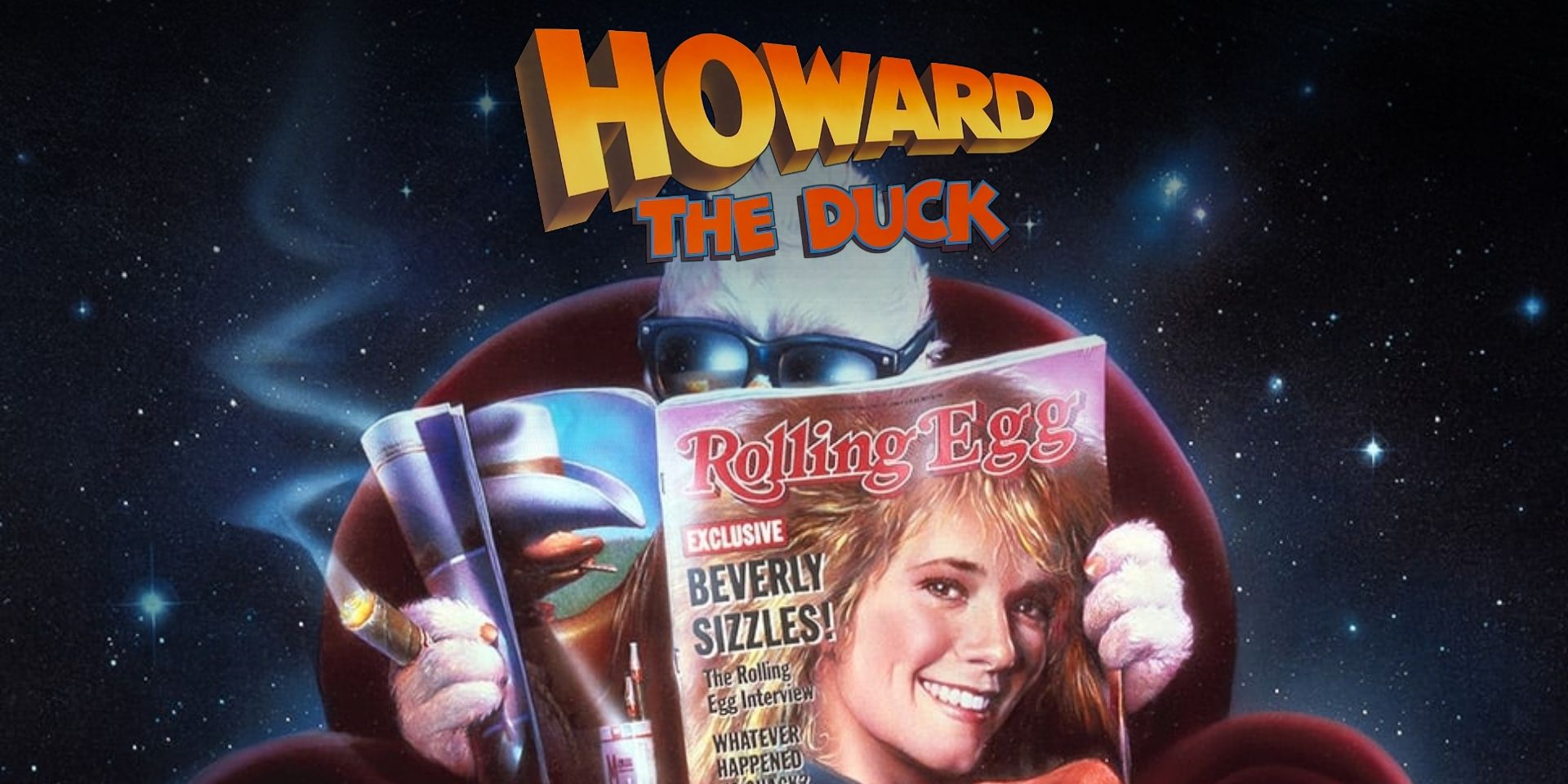Back in the '80s, comic book movies weren't exactly the cultural phenomenon they are today. Richard Donner's Superman was the sole exception, having taken the world by storm upon its release in 1978. Warner Bros. saw the opportunity for a franchise, and by 1986, they'd released two sequels and a spin-off. But the general public was beginning to tire of such films. 1984's Supergirl cost $35 million to produce and earned back less than half that. Meanwhile, Superman IV was facing massive budget cuts (en route to becoming one of the worst films ever made).
Marvel might have seen this as a chance for them to step in and take DC's place. They hadn't released a film since the Timely Comics era (Captain America, 1944). But now they had a powerful ally: George Lucas, fresh off Return of the Jedi. If anyone could put comic book movies back on the map, it was him. And it just so happened that he had been a fan of Marvel's Howard the Duck for years. He wanted to produce a film based on the character, and he knew just the people to make it. Enter Gloria Katz and Willard Huyck, a married couple and Lucas' co-writers on American Graffiti. For better or for worse, the fate of the film was in their hands.
So who is Howard the Duck? Well, he's Marvel's most meta character pre-Deadpool, a fourth-wall-breaking, wisecracking alien. More to the point, he's a talking duck who finds himself stuck on Earth. As the cover of Howard the Duck #1 proclaims, circumstances have him "trapped in a world he never made!". His adventures are strange, at times entirely nonsensical, but he never seems surprised by them, just annoyed. He didn't ask to be a "hero"; he just wants people to treat him like they'd treat anybody else. That innate desire sits at the core of his character and makes him a sympathetic figure despite his misanthropy.
Writer Steve Gerber, the creator of Howard the Duck, intended for the comic to be satire rather than parody. It examined and made fun of the social norms that he felt were contributing to a cultural decline. "Each little idiocy offers a slightly different peephole into the core insanity", as he told The Comics Journal. But in that same interview, he also highlights how his characters grow and change as their stories progress. How Howard's hollow exterior is a product of repressing his emotions "to deal with this world". And it's suddenly clear that Gerber didn't write Howard the Duck just for the laughs. "Howard is a very real character to me", he says.
The film doesn't explore such themes at all, and it's not like it has to. Katz and Huyck intended it from the start to be a fun comedy. But the comedy itself ended up being the main reason the film didn't work. The majority of its jokes just didn't land with audiences. Could it be a case of marketing to the wrong demographic? Possibly — Howard the Duck did pack in quite a bit of adult-oriented humor despite its PG rating. But instead of anything clever, it's all raunchiness, duck puns, and pop culture references. Sometimes it's even all three; the film's opening scene, for instance, shows Howard reading "Playduck" magazine. And it's all downhill from there as the writers repeat the same tired jokes over and over again. Of course, once the "comedy" part of a comedy film comes under scrutiny, the whole thing falls apart.
Howard The Duck's special effects are disastrous, even in comparison with lower-budget movies from the same time period. Katz and Huyck originally wanted the film to be entirely animation, which might've fit Howard's cartoonish design a bit better. Instead, a variety of performers, animatronics, and puppets portrayed him, which led to visuals somewhere between laughable and nightmarish. Elements like the story, characters, and acting are more divisive; they can come off as intentionally campy or incredibly annoying. Regardless, it all seems too rushed — as if the creators spent little time developing anything beyond the premise. Perhaps fittingly, as it came from a strip that dealt with the superficial nature of reality, it itself seems superficial.
And yet, there's a growing group of people who aren't ready to dismiss the movie just yet. Sure, it hardly has a place in comic book history. After all, 1986 was a big year. DC Comics released Watchmen and Batman: The Dark Knight Returns. Mike Richardson founded Dark Horse Comics, the publisher behind Sin City and Hellboy. A critically-panned film adaptation of a lesser-known Marvel property doesn't exactly rank alongside these milestones for the medium. But Howard the Duck has a place somewhere else; in the hearts of its devotees. Some people see it as so-bad-its-good, some enjoy its awkward situational comedy and frequent innuendo. Some watch it for nostalgia. After all, it's a film that couldn't have been made in any other time period. In a way, it proves that all the crazy stuff that happened back then was real. That it meant something.
And that's why Howard the Duck is still drawing attention. It's so out-of-nowhere that it's becoming its own little universe. It's so zany and over-the-top that there's nothing else like it. Universal recently re-released it on 4K Ultra HD; that doesn't happen to 35-year-old films unless they're still drawing an audience. Lea Thompson, who played Howard's human companion Beverly Switzler, has come to see the positives of the film. "My Howard the Duck fans are my favorite fans because they had to earn it!" she told the Hollywood Reporter earlier this year. And as for Howard, the character? Well, unsurprisingly, the fans want him back. His cameos in the first two Guardians of the Galaxy films (voiced by Seth Green) were just the beginning. He's currently appearing in Marvel's What If...?, and it's not a stretch to assume there are further plans for him.


.jpg)